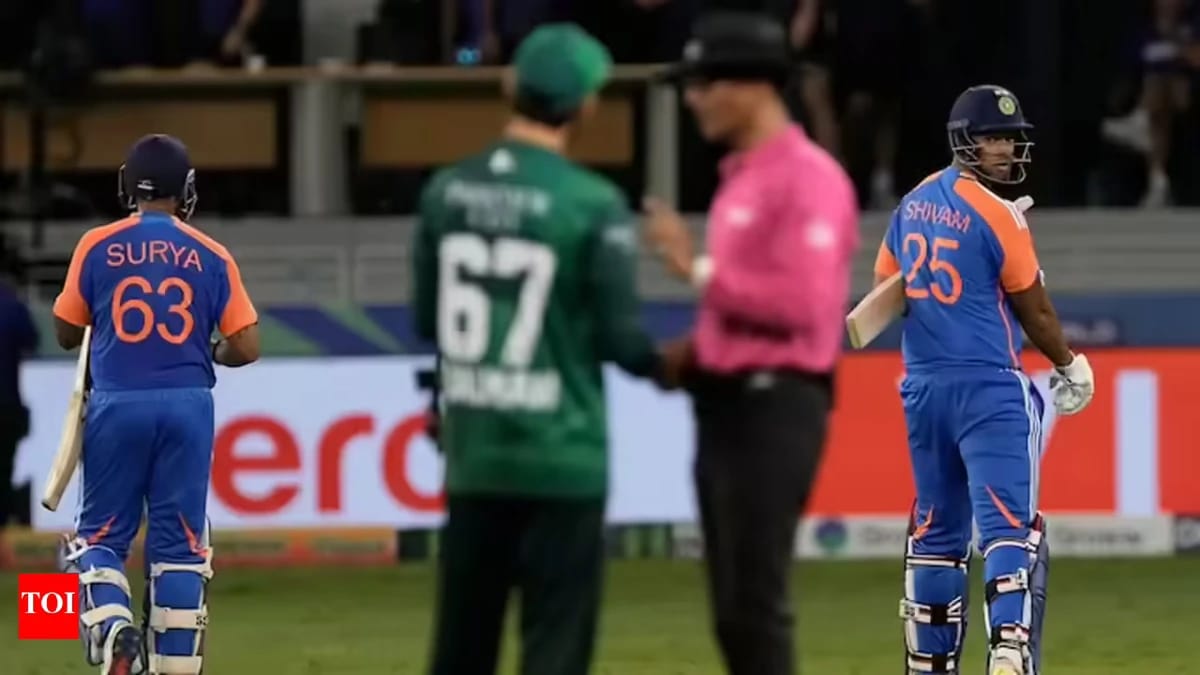BCCI Official's Reality Check on Stopping India-Pakistan Matches: "Easy to Talk, Hard to Implement"

BCCI Official Delivers Reality Check on Calls to Stop India-Pakistan Matches: "It's Easy to Talk About This"
A BCCI official has responded to former England captain Michael Atherton's suggestion that the ICC should stop deliberately scheduling India-Pakistan matches, highlighting the harsh commercial realities that make such proposals impractical. Speaking on condition of anonymity, the official pointed out that while critics may find it easy to advocate for change, the financial implications would be catastrophic for cricket's global ecosystem.
Atherton's Call for Change
Following the controversy-marred Asia Cup 2025, Michael Atherton wrote in The Times urging the ICC to implement transparent tournament draws that don't guarantee India-Pakistan clashes every time. His criticism was sharp and unambiguous.
"If cricket was once the vehicle for diplomacy, it is now, clearly, a proxy for broader tensions and for propaganda. There is little justification, in any case, for a serious sport to arrange tournament fixtures to suit its economic needs, and now that the rivalry is being exploited in other ways, there is even less justification for it."
Atherton suggested that for the next broadcast rights cycle, fixture draws should be genuinely random, adding: "If the two teams do not meet every time, so be it."
The BCCI's Pragmatic Response
The BCCI official's response acknowledged Atherton's concerns while injecting a dose of economic reality into the debate.
"It's easy to talk about all this, but will sponsors and broadcasters agree to it? In today's situation, if any major team, not just India, withdraws from a tournament, it will be difficult to attract sponsors."
This statement, reported by Dainik Jagran, underscores the fundamental tension in modern cricket: the sport's commercial health depends heavily on India-Pakistan encounters, making them effectively non-negotiable despite the geopolitical complications they bring.
The Economic Imperative
India-Pakistan cricket matches represent the sport's most lucrative fixtures. The 2023 ODI World Cup clash between the rivals drew over 400 million viewers globally—rivaling the Super Bowl's reach. These matches are the primary reason ICC broadcast rights command premium valuations, with the current 2024-2027 cycle worth approximately $3 billion, of which India-Pakistan fixtures form a crucial component.
Without guaranteed India-Pakistan encounters, broadcasters would likely bid significantly less for ICC event rights, creating a cascading financial crisis that would impact all cricket boards, not just the BCCI and PCB. Smaller nations particularly depend on ICC revenue distributions funded largely by these high-value fixtures.
The Asia Cup Context
The official's comments came after the Asia Cup 2025 descended into a series of controversies that exposed how geopolitical tensions can hijack cricket. India and Pakistan met three times during the tournament, with Suryakumar Yadav's team winning all encounters, including the final in Dubai on September 28.
However, the sporting achievements were overshadowed by off-field drama: players refused handshakes, provocative gestures were made during matches, and most notably, India declined to accept the trophy from ACC chairman Mohsin Naqvi—who also serves as Pakistan's Interior Minister—leading to an unprecedented situation where champions celebrated without their trophy.
The Bilateral Drought
India and Pakistan only meet during multilateral tournaments like World Cups, Champions Trophy, and Asia Cup. The last bilateral series between the arch-rivals occurred in 2013. Since then, both teams have faced each other in every ICC tournament, making these encounters both inevitable and indispensable for tournament viability.
The Impossible Choice
The BCCI official's response highlights cricket's impossible choice: maintain sporting integrity by potentially reducing India-Pakistan matches, or preserve the commercial foundation that funds global cricket by ensuring these fixtures remain central to tournament planning.
While Atherton's idealistic vision of transparent draws and politics-free cricket resonates with purists, the official's pragmatic counter-argument reflects the hard realities of modern sports economics. Until alternative revenue streams emerge that can replace what India-Pakistan matches generate, the ICC and member boards remain trapped in a system where commercial imperatives trump sporting ideals.